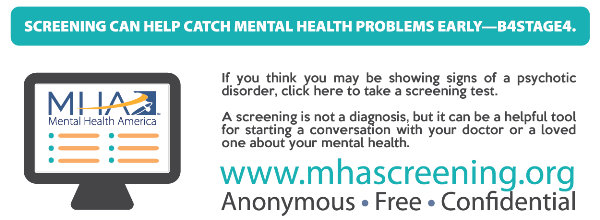Opera
The Center Cannot Hold Opera
The Center Cannot Hold is an opera (music by Kenneth Wells, libretto by Kenneth Wells and Elyn Saks) based on the memoir by USC Law Professor and MacArthur Fellow Elyn Saks.
From Ken Wells
Elyn gave a lecture prior to my first opera, “The First Lady” in 2010. Later she remarked: “That was great. Let’s collaborate!” “How?” I asked, “a science project or an opera?” “Both!” she replied.
We met over several months and I drafted the libretto to focus on Elyn’s experiences with psychosis, being in restraints, receiving a diagnosis, and finding the support and courage to develop a lasting friendship and finish law school. I used my own experience in psychiatric training at that time to flesh out her providers’ experiences. I used both my musical clinical training, as I observed challenges and hopes for recovery experienced by patients, family members and staff, to capture different perspectives by using a distinct voice for each stakeholder and layering them in ensembles.
The opera is about Elyn’s journey from psychosis (hence The Center Cannot Hold) to learning that she could develop some degree of control over symptoms through a combination of treatment, insight, and compassionate support. She found that even pretending to have control could be a useful starting point to effective coping.
The composition relies on traditional harmonic approaches, dissonant harmonies to convey conflict, touches of musical theater and an homage to Beethoven, as Elyn once sang parts of his 5th symphony to ward off hallucinations when held in restraints.
The chorus plays a large role, presenting major themes in the Prelude and serving as patients, providers, demons and law students.
Elyn is portrayed by three singers: The mature Professor Saks as narrator; the law student Elyn, and her psychotic self, “The Lady of the Charts.”
Several hospitalizations and psychiatrists are joined into one hospitalization and attending. I added a character, a sympathetic resident, based on my own experiences.
From Elyn Saks
I am delighted and just a little overwhelmed to have Ken make an opera out of my story. It’s a weird feeling to see your life sung operatically on a stage. I feel as if Ken has captured my experience and my voice. He also explored something only a fellow psychiatrist could know — what it’s like for a young doctor to care for people his age and just like him. I also like his writing parts for the three me’s (Professor Saks, Elyn Saks, and the Lady of the Charts). Of course I don’t have separate selves but I do have different aspects of myself that are sometime in conflict and hard to reconcile.
My closest friend from college, Kenny Collins, asked tongue in cheek when I told him about the opera “are you going to sing?” The answer is “decidedly not. I can barely carry a tune.” But the singers that Ken and Pacific Opera Project recruited are marvelous. I am deeply honored to be his subject.
View the Full Opera
The Center Cannot Hold: Part One - The Illness | A Chamber Opera in Two Acts from UCLA HSS on Vimeo.
Pictures from the Opera
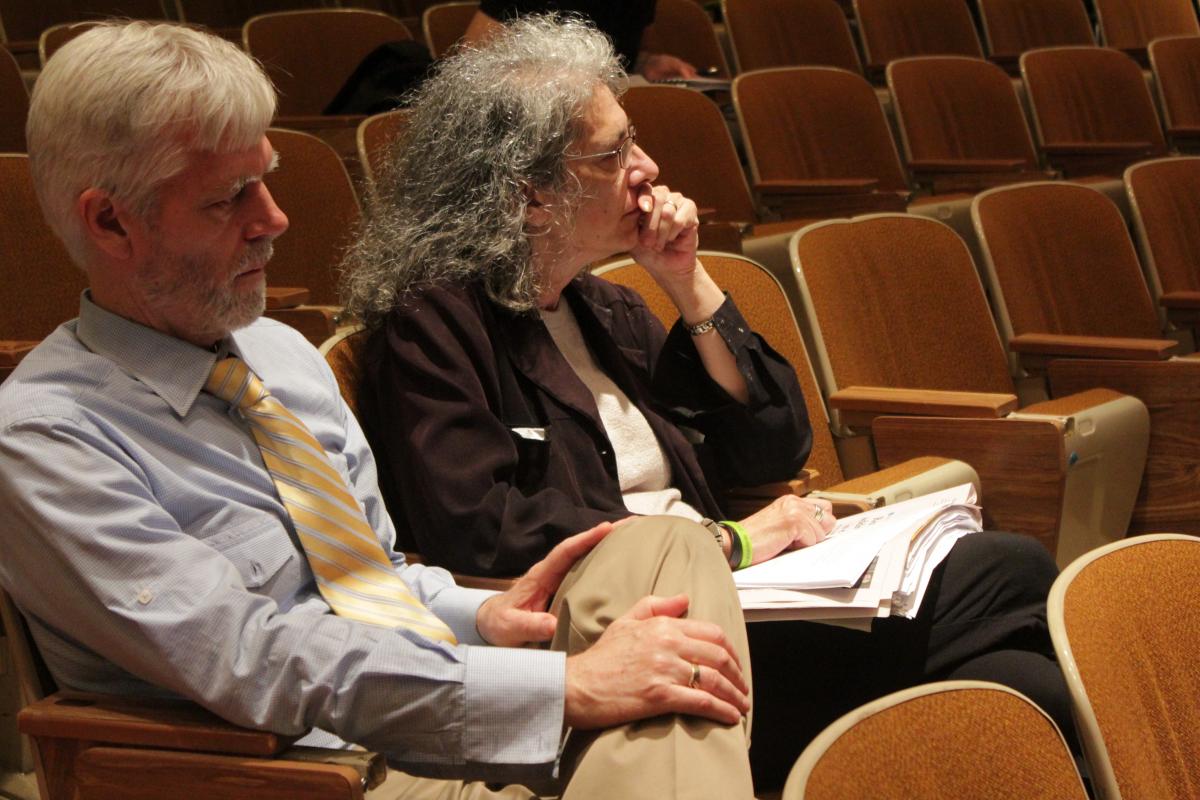
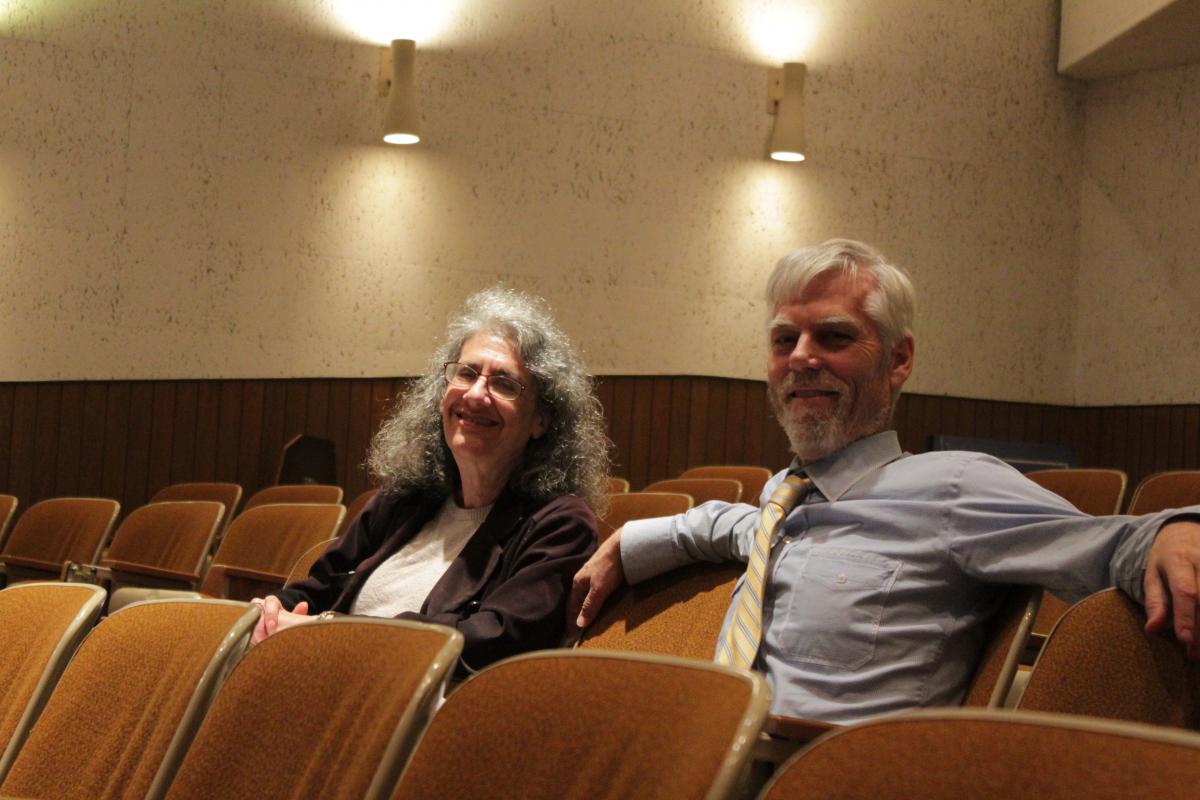
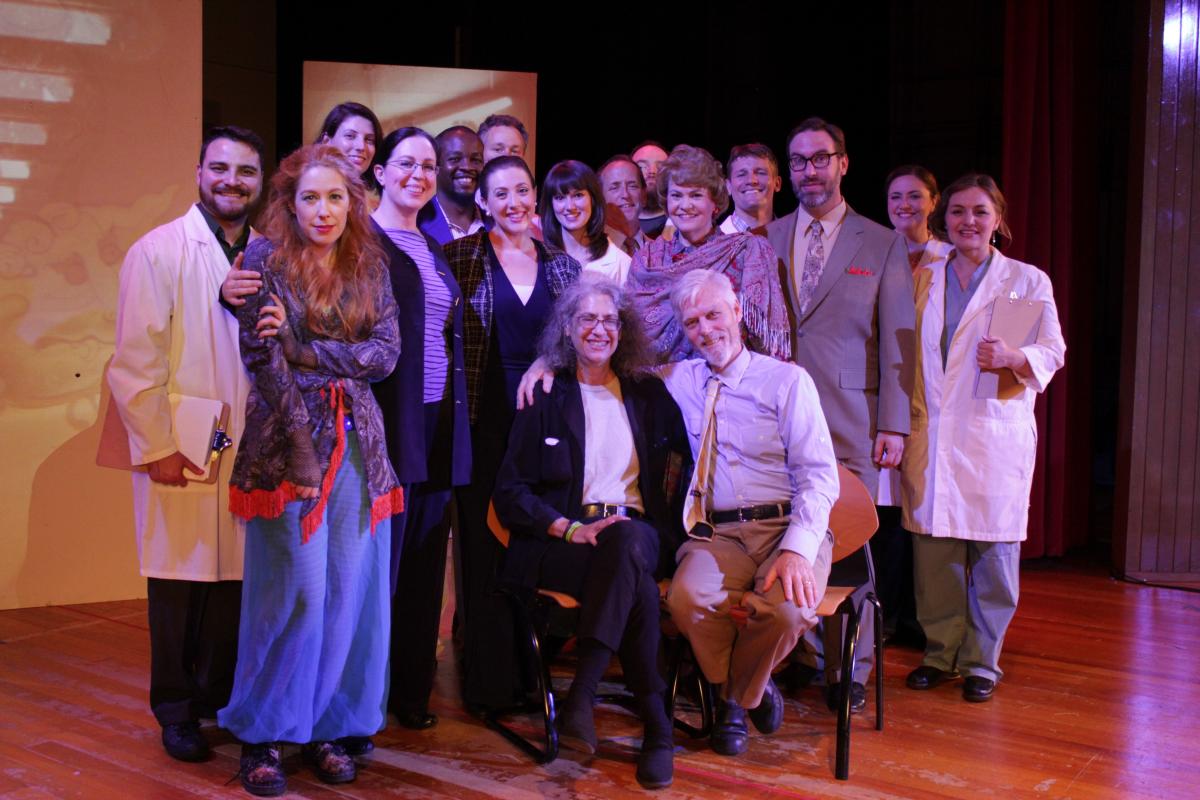

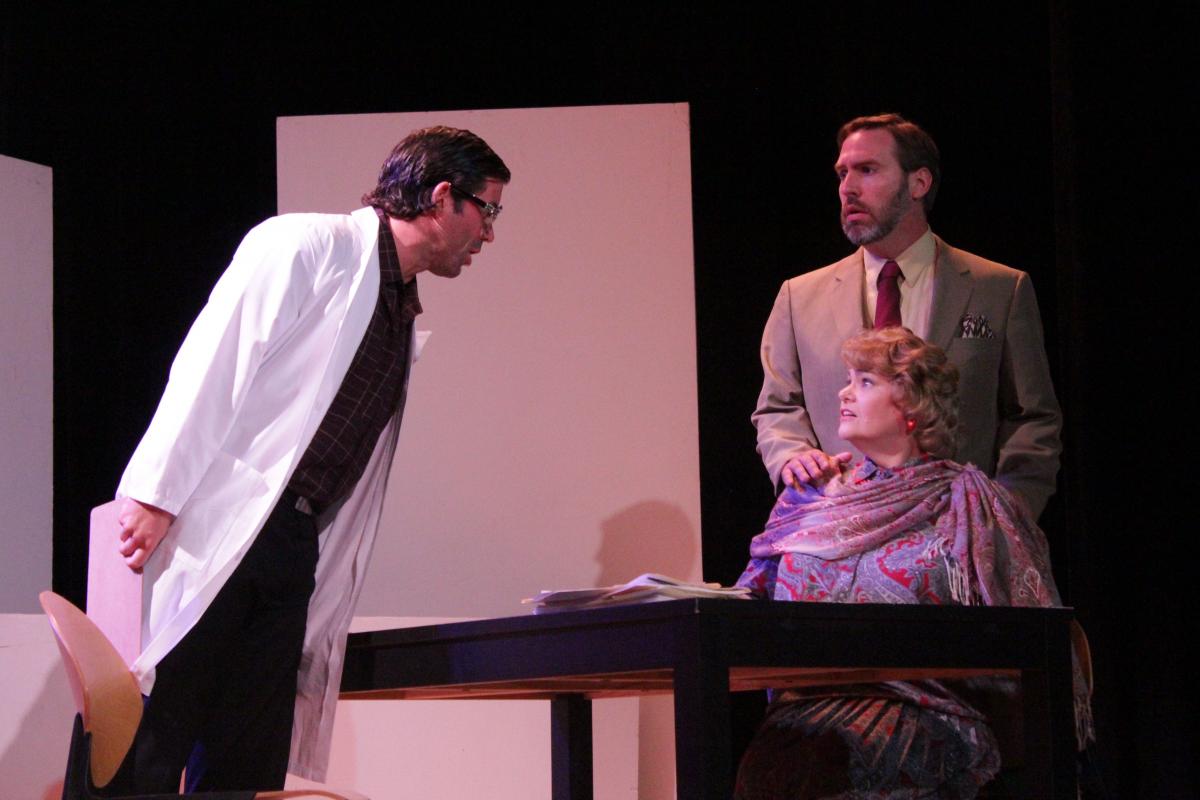
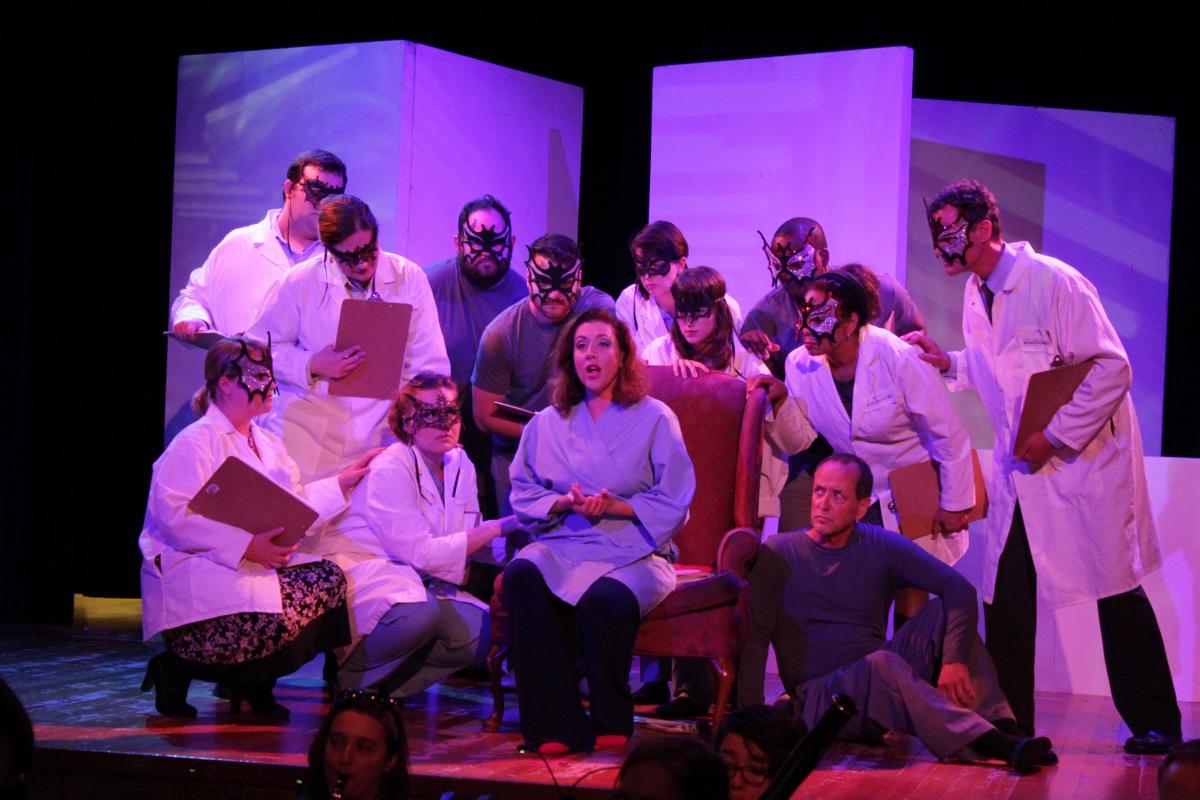

Psychosis
Psychosis is a general term used to describe experiences including strange or bizarre thinking, perceptions (sight, sound), behaviors, and emotions. Psychosis is a brain-based condition that is made better or worse by environmental factors-- like drug use and stress. While people sometimes use Schizophrenia and psychosis interchangeably, psychosis can be seen in a number of mental health conditions, including Schizoaffective Disorder, Depression, and Bipolar Disorder.
How Common is Psychosis?
3.5% of the population experiences psychosis in their lifetime-- that's over 11,300,000 American. Hearing voices and seeing things that aren't there are more common than we think. While it can be scary and confusing, it is possible to recover and get better, especially when we tackle issues early.[1]
Symptoms of Psychotic Disorders
A person might experience one symptom, but it’s more concerning when someone experiences more than one of the following symptoms. A change for one or two days might be related to sleep or stress, but experiencing symptoms for more than a few days or weeks is worthy of an evaluation by a mental health professional. If you’re concerned about a loved one, pay attention to sudden changes in their thoughts, emotions, and behaviors. Changes that seem really out of character might be early warning signs of psychosis. Things to look out for include:
- Hearing or seeing something that isn’t there
- A constant feeling of being watched
- Disorganized or bizarre speech or writing
- Inappropriate or unusual behavior
- Strange body movements or positioning
- Feeling indifferent or numb about important situations
- Deterioration of academic or work performance
- A change in personal hygiene and appearance
- A change in personality
- Increasing withdrawal from social situations
- Irrational, angry or fearful response to loved ones
- Inability to sleep or concentrate
- Extreme preoccupation or fears that seem bizarre
Please be aware that the screening is to identify individuals who are at ultra high-risk for psychosis, which means that being identified as possibly at-risk is sensitive and is not a diagnosis. If you’re concerned about your mental health it’s a good idea to reach out to someone you trust.
To learn more visit:
- Schizophrenia: What You Need to Know
- Schizoaffective Disorder
- Psychosis
- Paranoia and Delusional Disorders
- Psychosis (Schizophrenia) in Children and Youth
- Infographic: Life with Psychosis
- Staying Well When You Have a Mental Illness (PDF)
Seclusion and Restraints
Seclusion and restraint are practices used to restrict a person's movement that are most often seen in institutional settings like hospitals, prisons, and schools. Seclusion involves confining a person alone in a room or area against their will and physically preventing them from leaving. Restraints can include physically holding someone or using equipment that restricts a person's movement of his or her body and sometimes includes the nontherapeutic use of drugs or medications.
These experiences are often traumatic for people, especially individuals who may already be experiencing a crisis. Being forcibly restrained or involuntarily removed often results in escalation or resistance, regardless of whether or not someone has a mental health disorder. It can also destroy therapeutic relationships, increase feelings of shame and humilitation, and even result in injury or death.
Often justified as the result of staff and funding shortages, seclusion and restraint actually end up costing much more in both short- and long-term damage to the individual and the staff. Studies both within the United States and around the world have shown that systems and providers are able to greatly reduce or eliminate the use of seclusion and restraints when all involved are committed to culture change and compassion. To learn more about Mental Health America's stance on the elimination of seclusion and restraint, click here.
Getting Help and Resources
Recovering from psychosis is possible and treatment can make a big difference.
If you're not sure if you have psychosis and want to take a Psychosis Screen.
If you’re an adult struggling with psychosis, visit Get Help, Finding Therapy, SAMHSA Treatment Locator, contact a local MHA affliliate. or use our Where to Get Help Interactive Tool to find the best treatment options for you.
You can also learn more about assessment and treatment for Prodrome and First Break Psychosis at the Partners for StrongMinds and their treatment locator.
Want to share more? MHA is hoping to create a space where people can share and learn more about how it feels to have a mental health problem. Go to #mentalillnessfeelslike to share your thoughts.
Other information about Early Treatment, Prodrome and Psychotic Disorders can be found at:
- Early Psychosis Programs: Recovery After an Initial Schizophrenia Episode (RAISE), PREP (Prevention and Recovery in Early Psychosis), Mindmap
- Studies on First Episode Psychosis and Ultra High Risk from NASMHPD and Pubfacts.
- The Mayo Clinic - Schizophrenia and Childhood Schizophrenia Treatments and Drugs
- National Institute of Mental Health - NIMH Schizophrenia
- Schizophrenia.com – Schizophrenia.com Treatment
Opera Partners
The UCLA Center for Health Services and Society, under the direction of Dr. Kenneth Wells, has a mission to strengthen resiliency and improve the mental health of local and national diverse populations through rigorous research, effective programs, and partnering with consumers, children and their families, community-based and policy agencies. The center is dedicated to promoting respect, understanding, and dignity towards persons and their families living in under-resourced communities as well as using media, technology, and the arts to address stigma and engage populations. They collaborate with diverse partnerships to create an environment that promotes healthy development and well-being across the lifespan.
For more information about the opera, visit: https://hss.semel.ucla.edu/tcch/
The Saks Institute for Mental Health Law, Policy and Ethics is a think tank at USC Gould School of Law founded by renowned expert and MacArthur “Genius Award” recipient, Elyn Saks. The Saks Institute tackles challenging issues that require interdisciplinary research and collaboration, and engages experts in law, medicine, psychiatry, psychology, social work, philosophy, neuroscience, and public policy to address mental health issues, develop solutions, influence policy reform, and promote advocacy actions for improved treatment and compassion.
Website: https://weblaw.usc.edu/centers/saks/
Pacific Opera Project is dedicated to presenting energetic, high-quality, accessible performances of a broad variety of operatic repertoire; to benefiting the larger artistic community of Southern California by providing a fully professional environment for our artists; and to cultivating and enriching a wide audience in venues both conventional and unconventional throughout the region with innovative performances that enliven and preserve the art form.
Website: https://www.pacificoperaproject.com
Sources
 [1] Perälä J, Suvisaari J, Saarni SI, et al. Lifetime Prevalence of Psychotic and Bipolar I Disorders in a General Population. Arch Gen Psychiatry. 2007;64(1):19-28. doi:10.1001/archpsyc.64.1.19.
[1] Perälä J, Suvisaari J, Saarni SI, et al. Lifetime Prevalence of Psychotic and Bipolar I Disorders in a General Population. Arch Gen Psychiatry. 2007;64(1):19-28. doi:10.1001/archpsyc.64.1.19.


